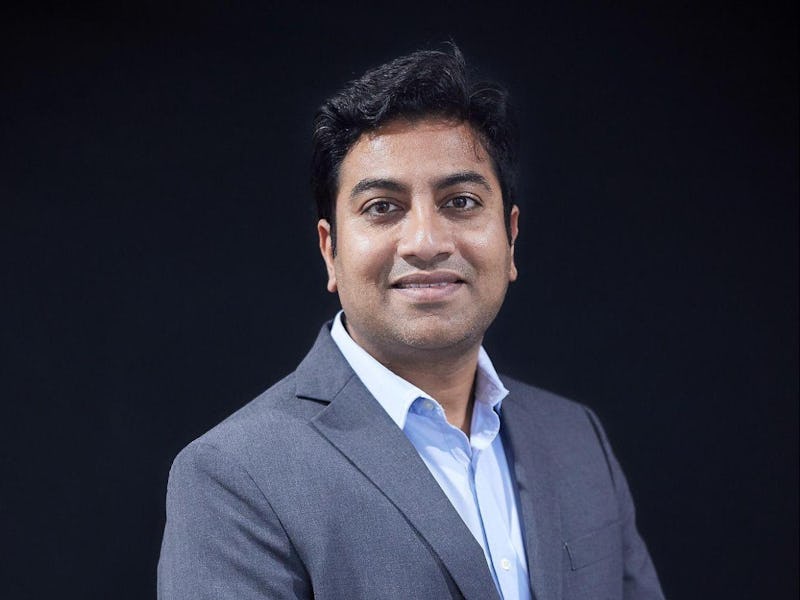How Kishore Kancharla Is Improving Health Tech Literacy
On a mission to improve access to health care across the globe.

Thanks to the internet and technology as a whole, people are more informed and in control of their lives than ever before, able to access food, relationships, and entertainment at the touch of a button.
There’s also been a vast increase in the understanding of health care in general because of technology. People can access the information and services they need around the clock, giving them the ability to learn how to improve their health and seek out the best medical care.
This is something that leading HealthTech trailblazer Kishore Kancharla has been immensely passionate about throughout his 20-year career in the field.
Mahatma Gandhi’s famous saying — “The best way to find yourself is to lose yourself in the service of others” — is the philosophy that drives Kancharla. Patient care is at the core of his efforts, and he has dedicated a significant portion of his career to helping the general public access basic health technology literacy.
At A Glance
Kishore Kancharla is a delivery project executive with nearly 20 years of experience. Inspired by his mother’s legacy, he has dedicated his career to advancing health care technology and engaging with underserved populations. His community outreach efforts aim to improve health technology literacy, addressing a critical gap in access to health care technology and services.
The Growing Issue Of Digital Poverty
It’s safe to say that digital poverty is becoming a pressing issue around the world.
Right now, approximately 21 million Americans lack broadband access. This disproportionately affects the rural population and has a significant effect on their health because it hinders the adoption of digital health technologies within these communities.
However, it’s also essential to recognize exactly why this has happened. It’s not just down to broadband access alone, despite that playing a pivotal role; finances, digital literacy, and cultural acceptance all come into play here.
Why A Lack of Health Technology Literacy Is A Major Problem
Digital health literacy is the ability to find and use health information with the goal of addressing or solving a health problem using technology. But this goes beyond what it may suggest at face value. It’s not just about self-diagnosis or providing better personal access; it impacts the state and efficiency of the health care industry as a whole.
The subsequent implications mean that patients who need to book appointments online or access medical records will experience delays in care. To add to that, such limited use of key preventive health care tools may result in higher morbidity rates.
Ultimately, this puts a strain on health care facilities due to poor and inefficient provider-to-patient communication. Lack of proper infrastructure for internet access and technology directly correlates to missed opportunities for better health care outcomes.
However, innovators like Kishore are working to remedy this issue.
Working To Drive Change
In response to the current state of health care technology literacy and accessibility, Kishore Kancharla is working for change in several core areas:
Machine Learning And Data Analytics
The basis of Kancharla’s work focuses on utilizing advanced technology to create applications that aim to improve both patient care and streamline key hospital operations.
Generative AI For Patient Care
AI solutions are implemented in order to provide personalized recommendations and predictive analytics for patients. This allows for improved engagement by delivering tailored health care solutions that make a difference.
Key Features Of Applications
- Tools for scheduling appointments more efficiently, reducing delays and missed opportunities for care.
- Patient communication tools that use AI to automate responses to common inquiries, ensuring timely and relevant interaction.
- Enhanced user interfaces for simplified navigation, making health care systems more accessible to users with limited technical knowledge.
Making A Difference
Throughout Kancharla’s career, he’s remained dedicated to improving both patient satisfaction levels and medical industry operational efficiency. By improving patient access to their own records and allowing for better interactions with health care providers, not only does engagement improve, but it also allows for an increase in patient empowerment.
Kishore also pours his efforts into training health care providers within the affected areas on how to utilize and implement these technologies. It’s important to appreciate that this works best when both health care providers and patients understand the benefits of the applications.
The Future Vision Of Expanding Health Tech Literacy
Kishore Kancharla hopes to continue making contributions to the expansion of health care technology and telehealth to improve access and reduce the gap in literacy. His long-term objective is to develop platforms that nurture seamless patient-provider interactions, enabling remote consultations and effective health monitoring.
BDG Media newsroom and editorial staff were not involved in the creation of this content.